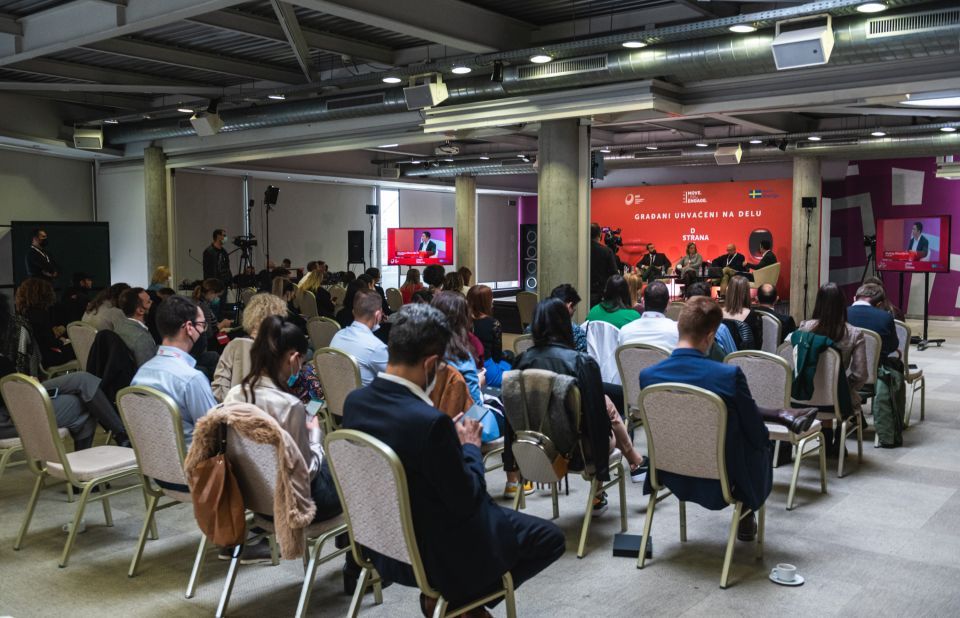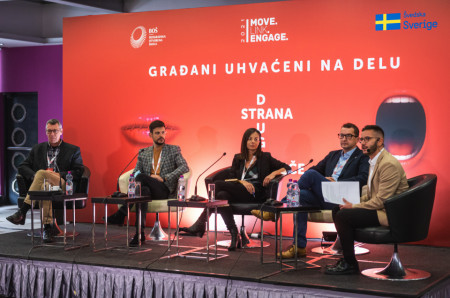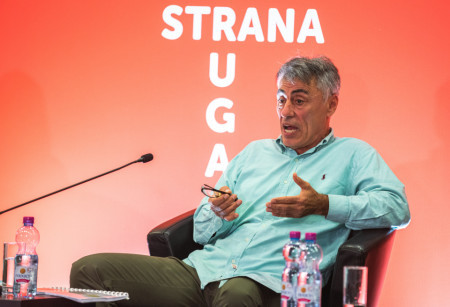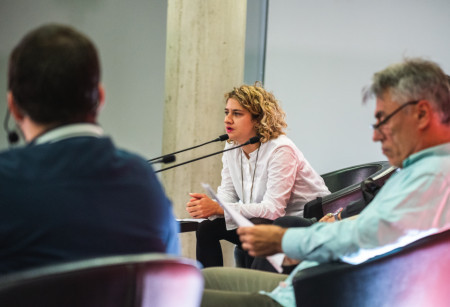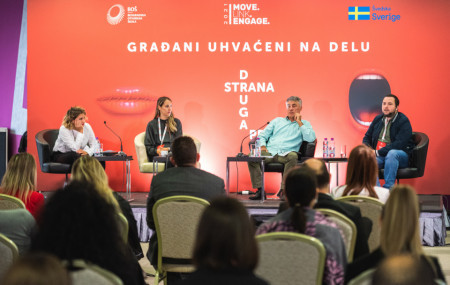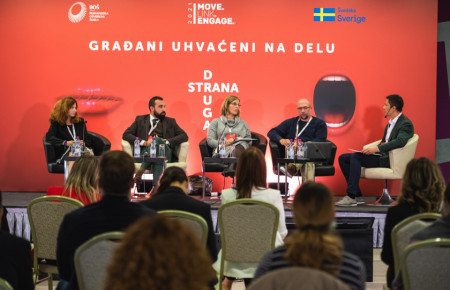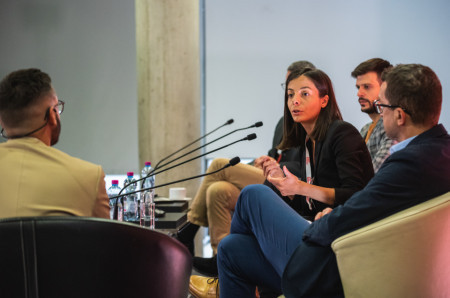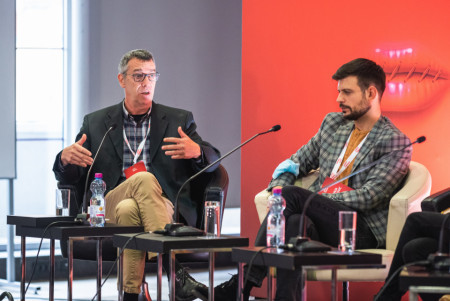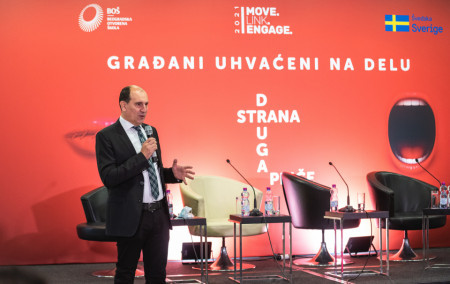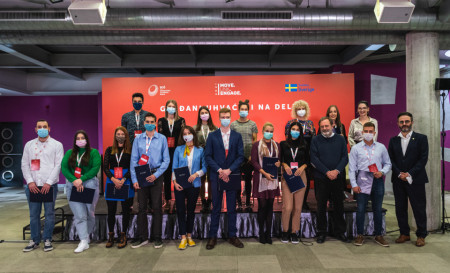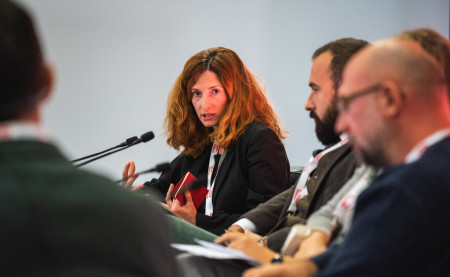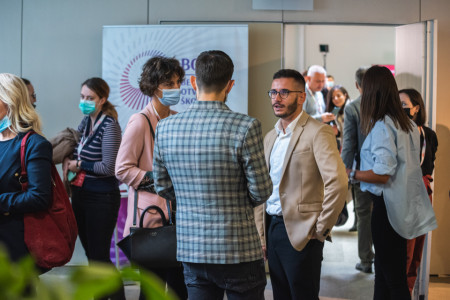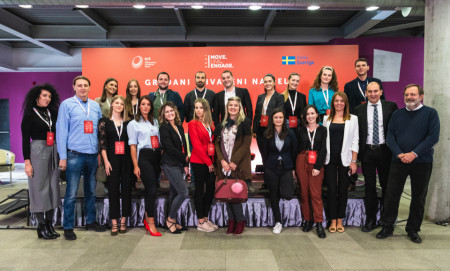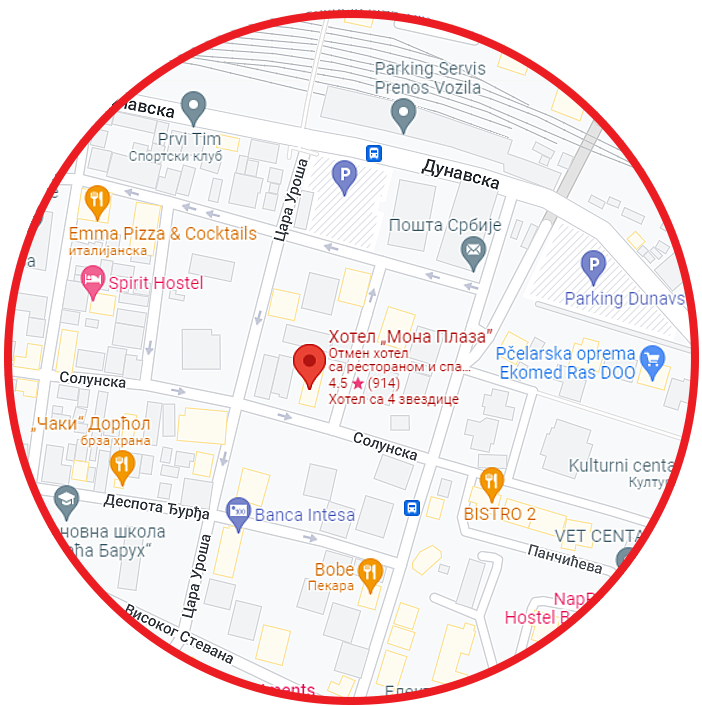The second day of the seventh Move.Link.Engage. conference, organized by the Belgrade Open School, was about stories of the fight - for free media, against fake news, for clean air, against depopulation, told on three panel discussions.
Participants on the first panel that dealt with the fight against false news agreed that the truth was the first victim of the pandemic. Marko Milosavljević from the Faculty of Political Sciences at the University of Ljubljana said that today's media have two roles and that they are categorized in that way, so they can only be propaganda or hostile media.
Research conducted by the Crime and Corruption Reporting Network (KRIK) says that in 2020, there were 1,200 fake news on the front pages of the Serbian media. Resources are a big problem in the fight against misinformation and false news, especially when the national media receive funds intended for local media, said Vesna Radojevic from KRIK. "When they ask me who finances KRIK, I proudly say – citizens, their donations make up 20% of our budget. Citizens recognize quality, objective information and they are ready to help and provide support when needed".
After discussing the fake news, the MLE conference continued with a panel on air quality in Serbia. "The situation with air pollution is generally bad in 2021, with no prospects for improvement, especially if we take into account that the heating season is just ahead of us and that the thermal energy sector is the biggest polluter in Serbia," said Milenko Jovanovic from the National Environmental Association. Marija Markovic, from the Green Wave organization, mentioned that clean air can be achieved only with better information and greater participation of citizens. Marjana Brkic from the Center for the Promotion of Science added that citizens can encourage changes for a cleaner environment with the help of new technologies, and the support of experts.
It was also concluded that the first civil network for air quality monitoring, established with the support of BOS, provided an adequate picture of measurements, but the measures are still missing. Many citizens, especially in areas where the air is assessed as clean, do not want to wait again for next September, to find out what kind of air they breathed this year. First step in their fight for clean air is informing citizens and the installation of civilian surveillance sensors, with the support of BOS. "That is why the civic network for measuring air quality will continue to expand and enable citizens to monitor air quality in their local communities," said Ognjan Pantic, coordinator of the project areas Energy, Climate and Environment of BOS.
Depopulation is the issue of the future. The biggest problem in this area is the inconsistency of different policies governing this area, that was the conclusion of the panel that tried to answer the question for whom are we creating a better society. In order to use the potential of each society, it is necessary for all sectors to be involved in the process that affects them. Therefore, the findings and data of the academic community are the starting point for making important decisions.
"Although the scientific goals of academic research do not have to be harmonized with the practical goals of public policy, for public policies tailored to citizens based on data, the most important thing is that there is a process of correction - that all relevant actors, including researchers, decision makers and users, are involved in all phases of policy making and implementation", said Dragan Stanojevic, assistant professor at the Faculty of Philosophy, University of Belgrade and national coordinator of the European Social Survey.
What practical policies in Serbia lack is broad dialogues and public debates on important political and social problems, so public policies are not adopted on the basis of data, said Biljana Djordjevic, assistant professor at the Faculty of Political Sciences at the University of Belgrade and representative of the Don't Let Belgrade D(r)own movement.
Traditionally, Move.Link.Engage. The conference ended with the awarding diplomas to students of the 28th generation of Future Studies who joined the largest alumni community in Serbia, which has more than 1,300 outstanding individuals.
You can read more information about the conclusions of the first day of the MLE conference HERE, and monitor the Belgrade Open Schools through the official website and account on social networks - Facebook, Instagram, YouTube and LinkedIn.
